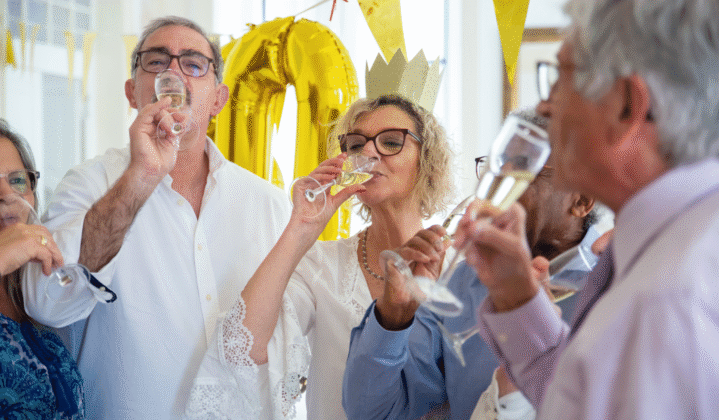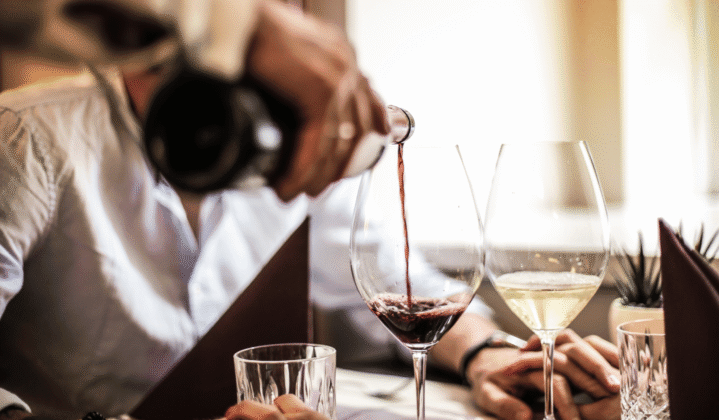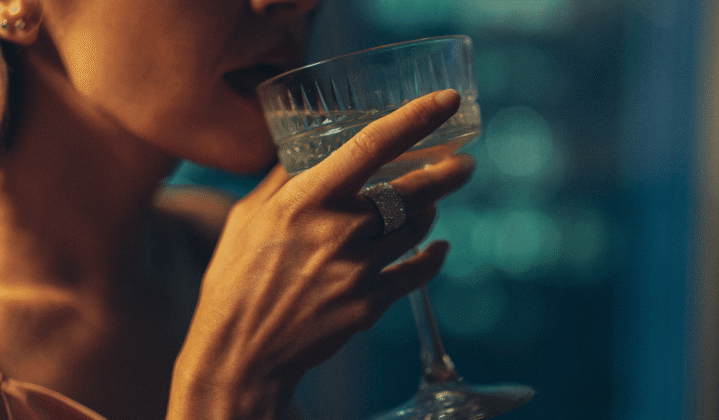Health Benefits of Drinking Champagne
Champagne has long been associated with celebrations, toasts, and life’s special moments. Yet, beyond its festive reputation, this sparkling wine offers some unexpected health benefits. When enjoyed in moderation, champagne can deliver wellness perks ranging from heart health support to mood enhancement.
Research continues to reveal how champagne affects the body, highlighting compounds like antioxidants and polyphenols that can contribute positively to overall health. From raising a glass at a wedding to savoring a quiet moment at home, enjoying champagne responsibly may do more than lift your spirits—it could also provide subtle health advantages.
Exploring the potential health benefits of champagne uncovers its impact on heart health, cognitive function, and skin vitality. Understanding these effects can enhance how you view this bubbly drink, transforming it from a celebratory indulgence to an occasional wellness booster.
Key Takeaways
- Polyphenols and antioxidants found in champagne may support heart health by improving circulation, reducing blood pressure, and protecting blood vessels from oxidative stress
- Moderate champagne consumption has been linked to cognitive benefits such as enhanced memory retention and improved blood flow to the brain, thanks to its phenolic compounds
- Champagne’s light alcohol content and ritualistic nature may boost mood and relieve stress by encouraging social bonding, dopamine release, and moments of mindful celebration
- Skin health may benefit from champagne’s antioxidant and exfoliating properties including protection from environmental damage, gentle brightening effects, and natural pore-tightening
- As a lower-calorie option among alcoholic beverages, champagne supports mindful indulgence especially when choosing brut or extra brut varieties and pairing with healthy, nutrient-rich foods
The Nutritional Profile of Champagne
While champagne may not be the first beverage that comes to mind when thinking of nutrition, it does contain some beneficial compounds. Here’s a quick breakdown:
| Component | Health Benefit |
| Polyphenols | Antioxidant properties, heart health |
| Potassium | Helps regulate blood pressure |
| Resveratrol | Anti-inflammatory, supports cardiovascular health |
| Low Calorie Count | Approximately 90 calories per 4-ounce serving |
| Moderate Alcohol | Potential mood enhancement when consumed responsibly |
Antioxidants and Heart Health

Champagne holds an intriguing blend of antioxidants, particularly polyphenols, that may contribute to cardiovascular wellness. These polyphenols, derived from the grapes used in champagne production, are known for their ability to combat oxidative stress—a condition linked to heart disease and arterial damage.
Polyphenols work by stimulating nitric oxide production, a compound that promotes blood vessel relaxation and improved circulation. This effect helps reduce blood pressure and supports overall cardiovascular function. According to research, moderate champagne consumption may decrease the risk of blood clots, which are a major factor in strokes and heart attacks. The study found that champagne’s phenolic compounds could protect blood vessels by reducing oxidative damage.
Additional Heart-Supporting Compounds in Champagne:
- Potassium: This essential mineral aids in blood pressure regulation by balancing sodium levels.
- Resveratrol: Found in the skin of red grapes, resveratrol has anti-inflammatory properties that may further benefit the heart.
- Brut and Extra Brut Varieties: These options contain less sugar, lowering the risk of blood sugar spikes and promoting a healthier cardiovascular system.
How to Enjoy Champagne for Heart Health:
- Choose Brut or Extra Brut: These varieties have less sugar, minimizing calorie intake and supporting blood sugar stability.
- Pair with Nutrient-Rich Foods: Combine champagne with foods like salmon, avocado, and walnuts. Omega-3 fatty acids in these foods help lower inflammation and support heart function.
- Limit to One Glass: Excessive alcohol can negate potential heart health benefits, increasing blood pressure and heart rate.
- Stay Hydrated: Balance champagne with water to maintain hydration and reduce alcohol’s impact on the cardiovascular system.
Champagne vs. Red Wine for Heart Health

Red wine is often highlighted for its resveratrol content, but champagne also provides heart-healthy compounds. Though champagne’s phenolic content is slightly lower than red wine, it still offers valuable antioxidants that can support vascular health. Additionally, the carbonation in champagne can accelerate alcohol absorption, potentially enhancing its effects on blood circulation.
However, moderation is essential. Consuming too much champagne can raise blood pressure and increase the risk of cardiovascular issues, undermining its potential benefits.
Cognitive Function and Memory Support
Champagne may not be the first beverage that comes to mind when considering brain health, but research suggests it may have some surprising cognitive benefits. A study conducted explored the effects of phenolic compounds in champagne on spatial memory. The research, performed on animal models, indicated that moderate champagne consumption could improve brain function by enhancing hippocampal signaling, a process vital for memory retention and cognitive processing.
The hippocampus is the region of the brain responsible for memory formation and spatial navigation. Phenolic compounds found in champagne, including tyrosol and caffeic acid, are thought to influence hippocampal plasticity, potentially promoting better memory retention. These compounds have antioxidant properties that protect brain cells from oxidative stress, which can lead to cognitive decline over time.
How Champagne May Support Brain Function:
- Enhanced Memory Retention: Phenolic compounds in champagne may aid in retaining spatial memory, helping to protect against age-related memory loss.
- Improved Circulation: The mild alcohol content in champagne can temporarily increase blood flow to the brain, potentially boosting cognitive performance.
- Antioxidant Protection: The antioxidants in champagne, particularly phenolic acids, work to reduce oxidative stress that can contribute to neurodegenerative diseases.
- Neurotransmitter Regulation: Alcohol in champagne may increase dopamine release, promoting a sense of well-being and potentially enhancing focus.
How Champagne May Help Prevent Dementia:
- Antioxidant Defense: Polyphenols neutralize free radicals that can damage brain cells over time.
- Improved Circulation: Enhanced blood flow to the brain supports cognitive function and memory retention.
- Neuroprotective Compounds: Resveratrol and phenolic acids work together to reduce inflammation, a key factor in dementia progression.
Tips for Cognitive Health:
- Drink in Moderation: Excessive alcohol can have the opposite effect, impairing memory and cognitive function. A single glass of champagne is sufficient to potentially gain its cognitive benefits.
- Combine with Brain-Boosting Foods: Omega-3-rich foods like walnuts, chia seeds, and salmon can amplify the cognitive benefits of champagne by supporting neural function.
- Stay Hydrated: Alcohol can dehydrate the brain, so balance champagne consumption with water to maintain optimal cognitive function.
- Engage in Memory-Enhancing Activities: Pair a glass of champagne with activities that stimulate the brain, such as puzzles, reading, or socializing.
Mood Enhancement and Stress Relief
Champagne is often associated with celebrations, joy, and shared moments. Beyond its cultural symbolism, it also contains compounds that may positively affect mood and reduce stress. Alcohol acts as a mild sedative, influencing the central nervous system by enhancing the release of dopamine and serotonin, two neurotransmitters linked to mood regulation.
The carbonation in champagne can also accelerate alcohol absorption, creating a quicker, albeit temporary, feeling of euphoria. This sensation can uplift the mood and alleviate minor stress. However, this effect is fleeting and should not be relied upon as a stress management strategy.
How Champagne May Improve Mood:
- Social Connection: The act of sharing a glass of champagne with loved ones fosters social bonding, which can elevate mood and reduce feelings of loneliness.
- Temporary Stress Relief: Alcohol can create a brief sense of calm by lowering inhibitions and promoting relaxation.
- Enhanced Dopamine Release: Alcohol consumption can trigger dopamine production, contributing to a temporary feeling of happiness or contentment.
- Ritualistic Enjoyment: The process of toasting, celebrating, and savoring champagne can evoke positive emotions and reduce stress.
Enhancing the Mood-Boosting Effects:
- Socialize and Connect: Enjoy champagne during gatherings to maximize the social and emotional benefits.
- Pair with Relaxing Activities: Sip a glass while listening to calming music, engaging in a warm bath, or practicing mindfulness to deepen the relaxation effect.
- Practice Mindful Drinking: Slow, deliberate sips can enhance the sensory experience, promoting relaxation without overindulgence.
- Combine with Aromatherapy: Pair champagne with calming scents like lavender or chamomile to further promote stress relief.
Champagne and Skin Health
Beyond its internal health benefits, champagne may also have external advantages for the skin. Rich in antioxidants such as polyphenols and resveratrol, champagne can help protect skin cells from oxidative damage caused by environmental pollutants and UV exposure. These antioxidants work by neutralizing free radicals, preventing premature aging and maintaining skin elasticity.
Additionally, champagne contains mild acids like tartaric acid, which can act as a natural exfoliant. This gentle acid helps to slough off dead skin cells, revealing a brighter, more radiant complexion. The natural astringent properties of champagne can also help tighten pores and reduce excess oil production.
How Champagne Supports Skin Health:
- Antioxidant Defense: Polyphenols in champagne protect the skin from environmental stressors, minimizing the risk of fine lines and wrinkles.
- Brightening Effect: Tartaric acid gently exfoliates the skin, promoting cell turnover and a more even skin tone.
- Anti-Inflammatory Properties: Resveratrol soothes inflammation and redness, making it beneficial for sensitive or acne-prone skin.
- Pore Minimization: Champagne’s natural astringency helps tighten pores, reducing the appearance of enlarged pores and promoting a smoother texture.
Champagne and Calorie Control
For those mindful of calorie intake, champagne can be a relatively low-calorie alcoholic beverage. A standard 4-ounce glass of champagne contains approximately 90 calories, making it a lighter choice compared to sugary cocktails or heavy beers.
Opting for brut or extra brut varieties can further reduce sugar intake, minimizing empty calories. Additionally, the smaller serving size typical of champagne flutes helps limit overall alcohol consumption, preventing the inadvertent intake of excessive calories.
Tips for Keeping Calories Low:
- Choose Brut or Extra Brut: These options contain less residual sugar, lowering calorie content.
- Skip Sugary Mixers: Avoid champagne cocktails mixed with sweet syrups or juices.
- Keep Portions Small: Stick to the traditional 4-ounce serving size to avoid excess calorie consumption.
- Pair with Light Appetizers: Opt for nutrient-dense snacks like fresh fruit, mixed nuts, or vegetable crudités to balance calorie intake.
Potential Drawbacks to Consider
While champagne offers various health benefits, excessive consumption can lead to negative effects. Alcohol is a diuretic, meaning it increases urine production and can lead to dehydration. This effect is particularly pronounced with champagne due to its carbonation, which can accelerate alcohol absorption.
Excessive alcohol consumption can also contribute to weight gain, liver damage, and impaired cognitive function. The sugar content in some champagne varieties can further exacerbate these risks, leading to blood sugar spikes and increased calorie intake.
Important Moderation Tips:
- Stick to One Glass: A single serving can provide potential health benefits without the risks associated with overindulgence.
- Hydrate Between Sips: Alternate champagne with water to minimize dehydration.
- Monitor Sugar Intake: Opt for drier varieties with lower sugar content to avoid unnecessary calorie consumption.
- Avoid Excessive Drinking: Chronic overconsumption can negate any health benefits and increase health risks.
The Social and Emotional Aspects
Champagne is deeply rooted in cultural and social traditions, often marking milestones and celebrations. Beyond its taste, the experience of sharing a glass of champagne fosters connection and creates lasting memories. This sense of camaraderie can contribute positively to mental health, reinforcing social bonds and elevating mood.
Making the Most of Celebratory Moments:
- Toast to Achievements: Use champagne to commemorate personal or shared accomplishments.
- Create Rituals: Establish a tradition of enjoying champagne during special occasions, fostering connection and continuity.
- Host Gatherings: Serve champagne at intimate gatherings to facilitate conversation and strengthen social bonds.
- Focus on Presence: Savor each sip mindfully, appreciating the moment and the company.
Enhancing Wellness with Champagne and Celebratory Moments

At California Champagne Sabers, we believe in savoring life’s moments responsibly. Champagne can offer intriguing health benefits when enjoyed thoughtfully. Our collection of champagne sabers adds a distinctive touch to every celebration. Whether you’re toasting to a milestone or gathering with friends and family, our champagne sabers transform each moment into a memorable experience, blending tradition with modern elegance.
For those seeking to indulge in champagne while maintaining a balanced lifestyle, we recommend pairing it with nutrient-dense foods like salmon, avocado, and mixed nuts. This combination not only enhances the flavors but also supports heart health and overall well-being.
Remember, moderation is key. Staying hydrated, choosing brut or extra brut varieties, and limiting intake to one glass can help you enjoy the positive aspects of champagne without the risks of overconsumption. Let’s raise a glass to celebrating responsibly and making every occasion unforgettable with our champagne sabers.
